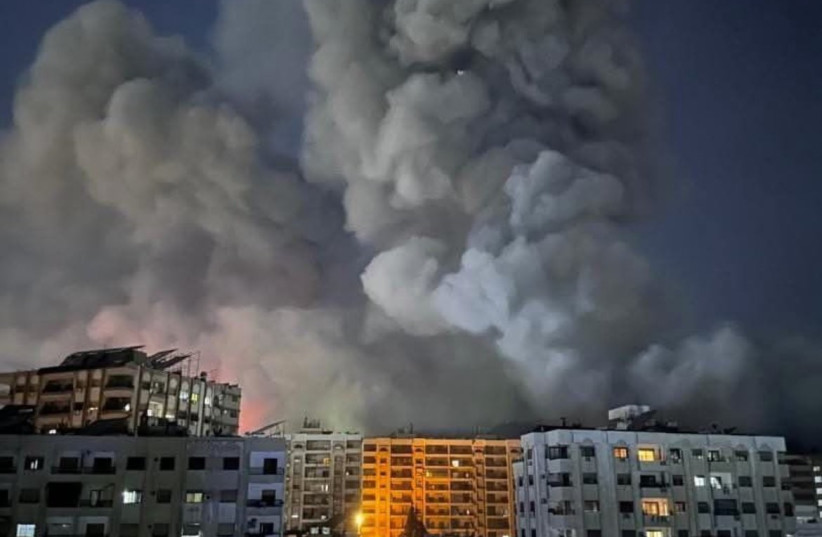Israeli security sources indicate that these actions have significantly expanded the Air Force’s operational freedom.
The Jerusalem Post, December 10, 2024
Israel’s air force carried out about 300 strikes in Syria in the early hours of Tuesday morning, according to Israeli security sources.
Most of the strikes were in southern Syria and around the city of Damascus, targeting Syrian army bases, with an emphasis on air defense systems and stores of surface-to-surface and surface-to-air missiles.
Israeli security sources indicate that these actions have significantly expanded the air force’s operational freedom.
Additionally, there have been attempts by Hezbollah to seize Syrian weaponry.
On Monday evening, two Syrian security sources told Reuters that IAF jets had struck at least three major Syrian army air bases that housed dozens of helicopters and jets.
The Qamishli air base in northeast Syria, the Shinshar base in the countryside of Homs, and the Aqrba airport southwest of the capital Damascus were all hit, the sources said.
The air force also reportedly struck several strikes on a research center on the outskirts of Damascus and a center for electronic warfare near the Sayeda Zainab area of the capital.
The Qamishli air base in northeast Syria, the Shinshar base in the countryside of Homs, and the Aqrba airport southwest of the capital Damascus were all hit, the sources said.
The air force also reportedly struck several strikes on a research center on the outskirts of Damascus and a center for electronic warfare near the Sayeda Zainab area of the capital.
The Syrian security source said Israeli troops reached Qatana, which is 10 km. into Syrian territory east of a demilitarized zone separating Israeli-occupied Golan Heights from Syria.
The Israeli military declined to comment.
Necessary to address security threats
In a letter to the United Nations Security Council, Israeli Ambassador Danny Danon described the military actions as “limited and temporary” measures necessary to address immediate security threats.
“Israel does not intervene in the internal Syrian conflict,” Danon wrote, emphasizing that the strikes were specifically aimed at ensuring the safety of Israeli citizens, particularly those residing in the Golan Heights. He reaffirmed Israel’s commitment to the Disengagement agreement that was made on May 31, 1974, between Israel and Syria.
Israeli Defense Minister Israel Katz has instructed the IDF to intensify its activities along the Syrian border following the Syrian military’s recent occupation of Mount Hermon. The IDF has been directed to establish a security zone beyond the buffer area while fostering ties with local populations, including the Druze community, to enhance stability in the region.

